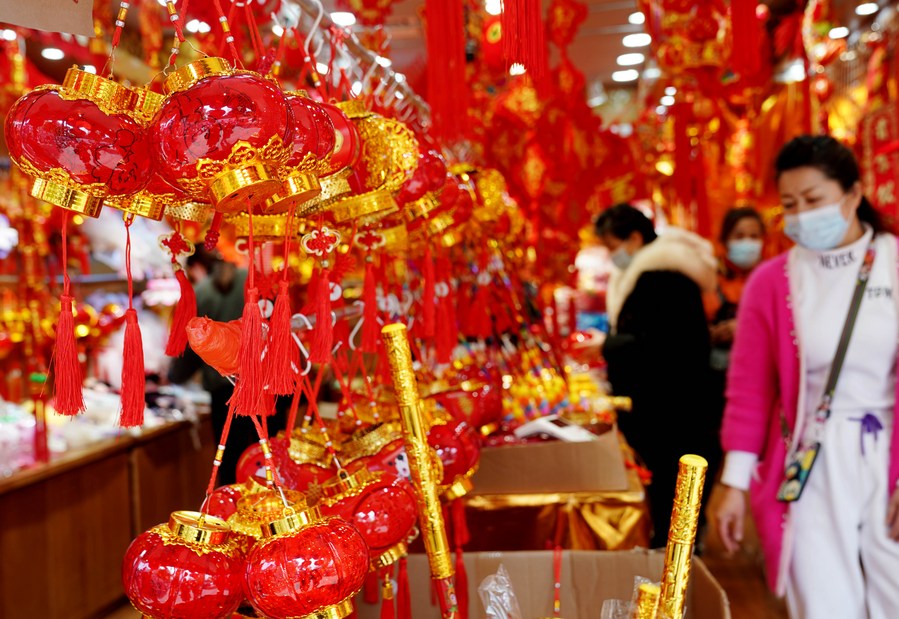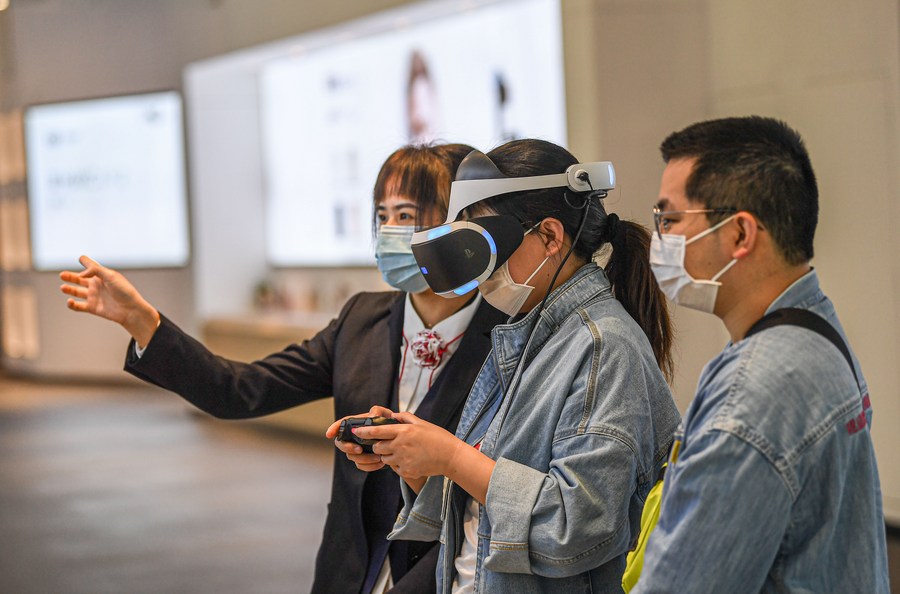
People shop for the upcoming Lantern Festival at Yuyuan Garden in Shanghai, east China, Feb. 24, 2021. (Xinhua/Liu Ying)
BEIJING, March 10 (Xinhua) -- China's consumer inflation fell in February due to base effects, while factory-gate prices picked up on the back of buoyant economic activities, official data showed Wednesday.
The consumer price index (CPI), a main gauge of inflation, declined 0.2 percent year on year in February due to a high comparison base last year, according to data from the National Bureau of Statistics (NBS).
Food prices went down 0.2 percent year on year, dragging down consumer inflation by 0.05 percentage points.
The decline was largely driven by the carryover effect as the COVID-19 outbreak boosted prices of consumer goods in February last year and resulted in a higher base.
The carryover effect sent the CPI inflation down by 1.8 percentage points, while new price increases pulled the growth up by 1.6 percentage points, the NBS data showed.
On a monthly basis, the CPI gained 0.6 percent, with food prices up 1.6 percent due to rising demand and increasing logistics cost during the Spring Festival, which fell in February this year, noted Dong Lijuan, a senior statistician with the NBS.

A consumer tries a gaming console during the Lunar New Year holiday at a duty-free shopping mall in Haikou, south China's Hainan Province, Feb. 14, 2021. (Xinhua/Pu Xiaoxu)
China has set its consumer inflation target at around 3 percent for the year of 2021, according to a government work report submitted Friday to the national legislature for deliberation.
Wednesday's data also showed China's producer prices, which measures costs for goods at the factory gate, rose 1.7 percent year on year in February on top of a 0.3-percent rise in January.
A breakdown of the data showed that the PPI for the domestic oil and natural gas extraction sector rose 7.5 percent month on month due to continued growth in international crude oil prices.
Rising domestic demand boosted prices for the non-ferrous metal smelting and rolling processing industry, with its PPI up 1.5 percent month on month.
As major global economies rolled out vaccinations and recovery got on track, rising demand will continue to drive up commodities prices, which will bring faster PPI growth, according to Wen Bin, a chief analyst at China Minsheng Bank.

Young people shop at a Top Toy store in Guangzhou, south China's Guangdong Province, Jan. 22, 2021. (Xinhua/Deng Ruixuan)
The rapid rise of global commodity prices has prompted Nomura Securities to raise inflation forecasts for China as the country is heavily dependent upon imports of commodities including crude oil, minerals for base metals and grains.
It raised annual PPI inflation forecasts for 2021 and 2022 to 4.2 percent and 1.6 percent, respectively, from the previous projection of 2.7 percent and 1.1 percent.
Forecasts for annual CPI inflation were lifted to 1.7 percent and 2.1 percent for 2021 and 2022, respectively, as the PPI inflation is likely to pass through to CPI.
Although rising inflation will likely increase pressure on the central bank, Nomura expects China will make good on its pledge to make "no sharp shift" in its policy stance.
"We expect neither hikes nor cuts to either policy rates or the reserve requirement ratio (RRR) in 2021," said Nomura. ■




